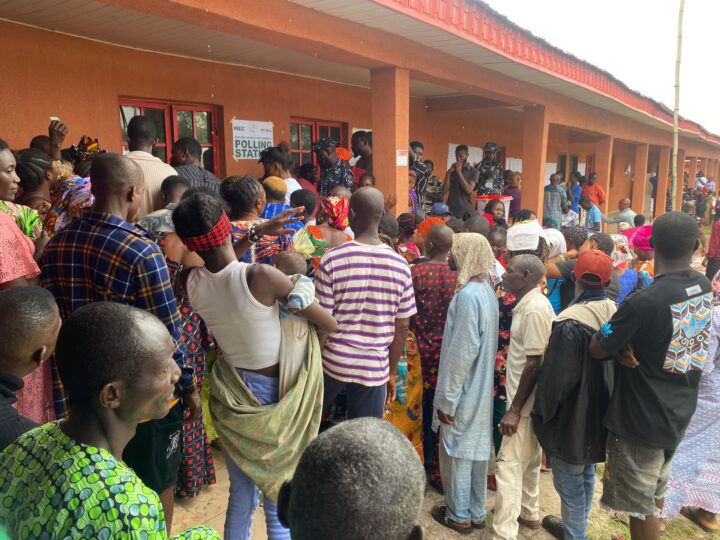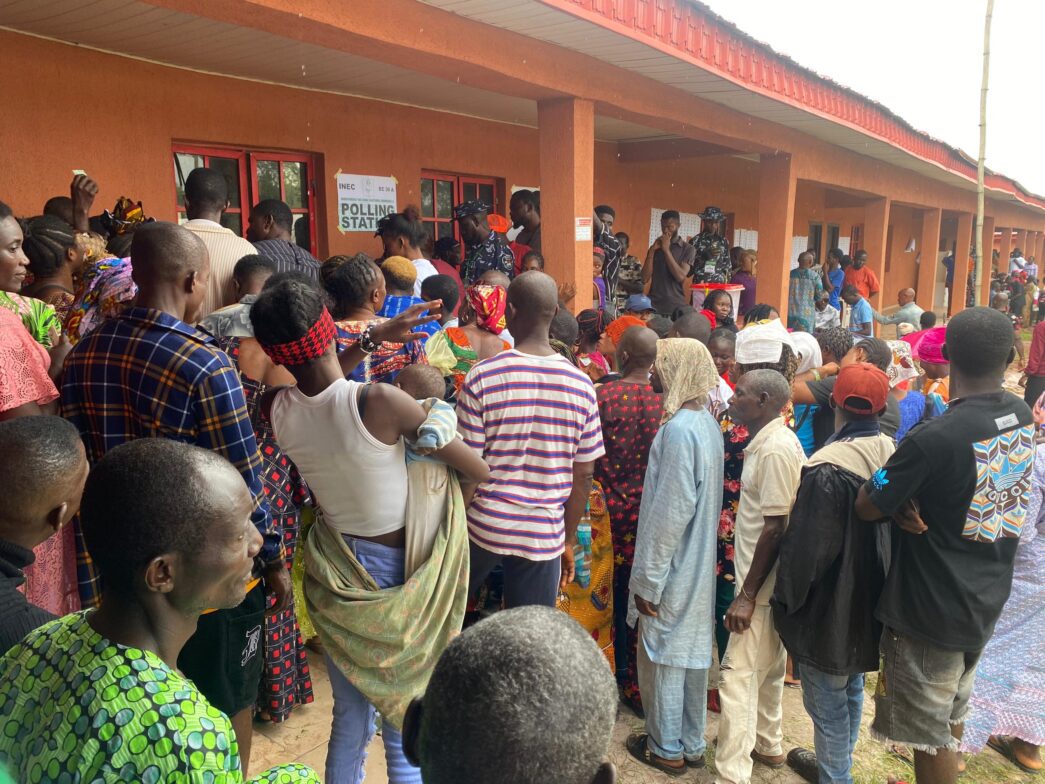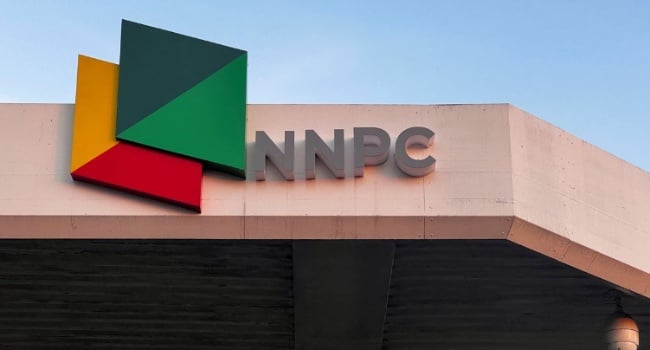BY MICHAEL OYEWOLE
In 1965, millions of Americans marched from Selma to Montgomery, Alabama, demanding an end to racial segregation. Their courage forced the government to pass the Voting Rights Act, a landmark law that reshaped democracy. This pivotal moment in history underscores a universal truth: progress happens when citizens refuse to stay silent. Governments, no matter how well-intentioned, are not immune to complacency, nepotism, corruption, or misprioritisation. The onus of responsibility then rests on citizens to persistently demand that their leaders act in the nation’s best interest. I intend to explore why such vigilance is not just a right but a moral duty; how this patriotic call will foster societal progress, and how it shapes the destiny of nations.
Historically, from ancient Athens to modern nations, the vigilance of the public has been the bedrock of just and governance. In 1788, philosopher Thomas Jefferson warned, “The government closest to the people serves the people best.” Citizens must never outsource the demand for human capital development and the overall delivery of the dividend of democracy to the political class. In Nigeria, for instance, political actors move from one party to another, nearly every three market days. Therefore, it is imperative for citizens to own the process of being an opposition by actively participating in governance, demanding accountability, and understanding the power of collective action, citizens can ensure that the dividends of democracy are delivered to its fullest.
As politicians are at liberty to jump from one political party to another, the citizens have only one party, Nigeria, and must maintain a commanding consistency for the sole purpose of achieving human capital development and the growth of the Country. The more reason citizens cannot afford to farm out being an “opposition”, a concept of holding the government in power accountable as they insist on upholding constitutional obligations and doing right by the people. Citizens must cease being passive recipients of government actions; they are active stakeholders in the democratic process. In Nigeria where citizens act like a “conquered” people and where democracy is often taken for granted, it is pertinent to remember that the true democratic power lies in the hands of the people.
Advertisement
Beyond voting during an electioneering cycle, a constitutionally guaranteed right, understanding the issues, dissecting contents of National importance, researching candidates, making constructive criticism, engaging informed societal consciousness, resisting the abuse of power – public office, and staying informed about current events are essential for making informed decisions if we must grow this Country and develop as a people.
No doubt, The quest for ethical governance is fraught with significant impediments; authoritarian regimes, entrenched political patronage systems, over-bloated governments, and systemic corruption frequently obstruct reform efforts. Furthermore, the resistance of the government to transparency and accountability can manifest in oppressive security responses. Nonetheless, the resilience of the citizenry, expressed through sustained advocacy, peaceful activism, and informed civic participation remains pivotal in mitigating these challenges.
For the records, a docile citizenry is a blessing to the political class. Meanwhile, constitutional democracy relies on active citizens’ participation for its true essence. From the peaceful demonstration in Selma to the Pots and Pans Revolution in Iceland to the resistance to military regimes in Nigeria, these examples show that National progress and societal growth often spring from the collective courage of the people to demand accountability and good governance.
Advertisement
Interestingly, governments, more often than not, are a reflection of the will of the people. Democracy, a concept founded on the principle of representation puts power in the hands of elected government officials as a tool to serve the people. However, without sustained pressure from citizens, governments may drift toward serving narrow interests, such as corporate lobbies, political elites, a complete disconnect from the people, or even elevate more partisan agendas. When citizens speak up, they remind leaders who they work for. Protests, petitions, and public discourse keep policymakers aligned with grassroots realities.
When citizens make a sustained push for accountability in leadership, this directly prevents any form of moral erosion. It is common knowledge that power, if unchecked, tends to corrupt. History is littered with leaders who prioritized personal gain over public good, from dictators embezzling national wealth to democracies enabling the looting of our common patrimony. It is expected that citizens act as a moral compass by calling out unethical behaviour. For instance, in Brazil, Operation Car Wash exposed a vast corruption network involving politicians and businesses, driven by public outrage and judicial activism. Such movements reinforce that governments must operate transparently and justly or face consequences.
When citizens unite across ethnic divides, religion, political leanings, social class, or creed, they compel governments to address systemic nepotism, inutile leadership, and the lack of giving priority to the needs and aspirations of citizens. Silence, conversely, perpetuates injustice. Do you know that in 2014, Taiwan was on the verge of cementing a controversial deal with China? It was a determined movement by students, code-named “Sunflower Student Movement” that forced the government to abandon the controversial trade deal with China, prioritizing democratic safeguards over expediency.
Citizens set the standard for what governance should look like. In New Zealand, Prime Minister Jacinda Ardern’s empathetic leadership during crises was partly shaped by public expectations of transparency and compassion.
Advertisement
You may, therefore, be tempted to ask, why is it important for citizens to demand accountability and good governance from elected or appointed public officials? Primarily, elected or appointed government officials are constitutionally obligated to articulate and advance the interests, needs, and values of the people they lead.
Hence, citizens play a critical role in ensuring the accountability and efficacy of governance exercised by their elected or appointed Government officials, and this is rooted in several consequential elements. When they fall short in this duty, it becomes imperative for citizens to engage in oversight mechanisms to uphold representation that prioritises their needs as a people. More so, when government officials are aware that their activities are subject to monitoring, there is a heightened likelihood of prudent resource utilization, which in turn can enhance public services and infrastructure quality.
For emphasis, accountability functions as a critical check on the considerable authority wielded by elected or appointed government officials concerning policy formulation and resource distribution, thus acting to mitigate potential abuses that could precipitate authoritarian governance.
As cadre Demola Olarewaju rightly stated, “politicians have only their ambitions at stake; we as citizens have our lives and future at stake.” As a people we must place utmost value on our constitutional guaranteed right to vote, it should become a powerful tool used to protect our rights and the demand for the dividend of democracy, and not a worthless tool to be wasted.
Advertisement
An accountable government exhibits heightened responsiveness to the dynamic needs of its people, thereby optimizing its service to the public interest. Ultimately, by demanding accountability, citizens safeguard democracy, ensuring that governmental structures function as instruments of collective welfare rather than avenues for personal advantage. This principle is instrumental in fostering public trust; citizens exhibit increased confidence in governance when leaders are observed accepting responsibility for their actions.
While I concede that government officials are not omnipotent; they are human institutions prone to error and bias. Citizens, as the ultimate stakeholders, must tirelessly advocate for policies that reflect justice, equity, and foresight. This is not about distrusting leadership but about nurturing it to rise to its highest potential. As Nelson Mandela once said, “It is in your hands to create a better world for all who live in it. Ordinarily, the demand for governance should not be optional, it is the lifeblood of a thriving society. When citizens raise their voices, they don’t just shape laws; they equally shape history.
Advertisement
Michael Oyewole writes from Ilogbo Ekiti and can be reached via [email protected]
Advertisement
Views expressed by contributors are strictly personal and not of TheCable.


